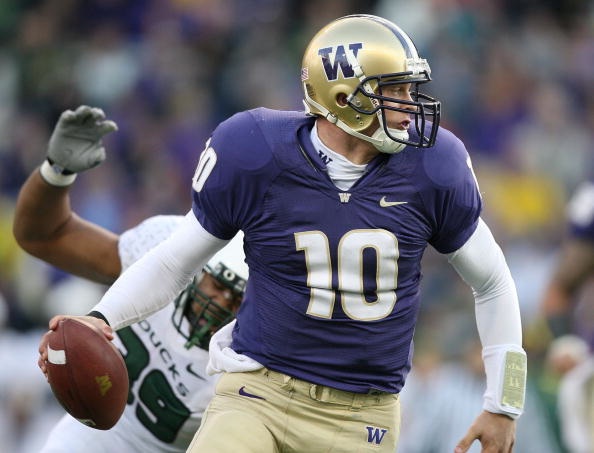 The University of Washington compliance office has informed NFLPA Contract Advisors that the university has a new Agent Policy in place regarding student-athlete interaction with agents, financial advisors, or “anyone recruiting” UW student-athletes. The scope of the class is larger than the class in the recently established Agent Policy at the University of North Carolina-Chapel Hill, but is vague enough to cause potential interpretation problems in the future.
The University of Washington compliance office has informed NFLPA Contract Advisors that the university has a new Agent Policy in place regarding student-athlete interaction with agents, financial advisors, or “anyone recruiting” UW student-athletes. The scope of the class is larger than the class in the recently established Agent Policy at the University of North Carolina-Chapel Hill, but is vague enough to cause potential interpretation problems in the future.
[Related: New University Of North Carolina Agent Policy Is Extremely Limiting]
NFLPA Contract Advisors received three documents from Washington’s compliance office:
Washington’s Agent Policy states that, “UW Athletics does not want to create barriers between our student-athletes, agents and financial advisors.” Yet, while UW may not intend to create such barriers, there is no disputing that the end result is that the university’s measures will only empower coaches who wish to influence players’ agent decision making process and/or allow agents and financial advisors who ignore the rules to have a leg up on the rules abiding competition.
[Related: University Of Miami Unveils Football Agent Policy Aimed At ‘Limiting Distractions’]
UW prohibits any verbal or in-person contact with any UW underclassman football student-athlete, their family, or friends. Agents and financial advisors may have contact with UW seniors and red-shirt senior football players according to the following “Agent Calendar”:
January-March: Contact in any form (e.g. phone, text, in-person) is not allowed.
April-June: Only in-person contact at player’s home or on-campus is allowed. A parent/guardian must be present during the contact.
July: Only scheduled, on-campus agent interviews are allowed. These interviews are arranged by player invitation only. UW will host an agent day on-campus (specific dates TBD).
August-December: No in-person contact is allowed. Agents/Advisors are allowed one phone call a week on Sundays and Mondays and text messages may be sent on Sundays and Mondays only.
It appears that a new trend is emerging among Division I schools who wish to control the representation recruiting environment. However, in discussing the new agent policies with agents across the country, not a single one of them has faith that these measures will lead to their desired effect.
